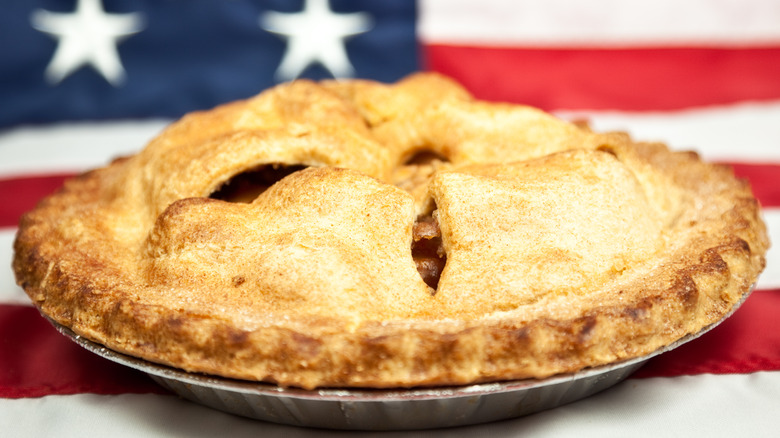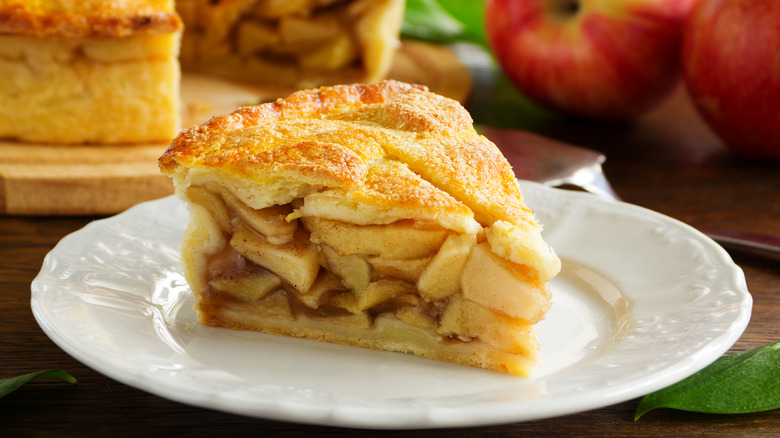Eating Apple Pie On The Fourth Of July Goes Back To The First American Cookbook
Besides the stars and stripes of the flag, one of the most referenced and recognizable symbols of America is the apple pie. American World War II soldiers heading into battle declared they were fighting for "mom and apple pie." And there's the classic Don McLean ode to "American Pie" (the first versions of the song included the lyric "Bye Bye Miss American Apple Pie.") The country's love of apples is further cemented in folktales about John "Johnny Appleseed" Chapman who planted apple trees across the Midwest in the early 1800s — even though, factually, they were more popular for hard cider than for pies.
So, why exactly is apple pie such a pervasive American emblem? One of the strongest pieces of evidence is that recipes for apple pie appear in the very first cookbook published in America. The first edition of Amelia Simmons' "American Cookery" was released in 1796, a little over a decade after the end of the Revolutionary War. Her recipes use dried or cooked apples plus sugar, lemon zest, and rose water. That makes apple pie a pretty authentic, early American dish to make for Independence Day celebrations.
Here's how apple pie is (and isn't) American
Incredibly, apple pie wasn't invented in America. Settlers who immigrated from Germany, Holland, and England likely brought apple pie recipes with them. The same is true of apples themselves, which didn't exist in North America until colonists plants the seeds they brought with them to the New World.
Some sources say that making apple pie was an act of rebellion on the part of the American colonists. But really, the rebellion was expressed in how these independent early Americans changed their Old World recipes for their new home. The subtitle to Simmons' cookbook sums this up, saying her apple pie recipe and others are "adapted to this country and all grades of life." These changes included a thinner crust – a practical way to make meager supplies of flour last longer but with the side benefit of being lighter and much more delicious than traditional, heavy English crusts. Plus, settlers would also incorporate newfound ingredients like cranberries into apple pies.
Whether or not apple pie began as an intentional act of rebellion for early Americans is debatable, but what's certainly true is that the humble pie quickly grew to become a symbol of national pride. Literary Hub shares that in 1889, a writer for the Milwaukee Sentinel newspaper penned a heartfelt love letter to apple pie, going as far as to suggest that those applying for American citizenship should first have to eat an apple pie in front of a judge. Why? They wrote that apple pie is a "symbol of the solid, satisfying, and tenacious life of America."

